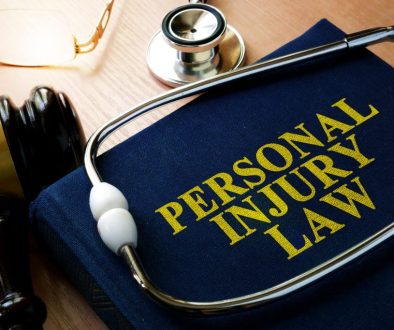How Do You Determine Criminal Responsibility in California?
Understanding how criminal responsibility is determined in California is crucial for anyone navigating the legal system, whether you’re a defendant, a victim, or just someone interested in the law. Criminal responsibility refers to the accountability a person has for their actions when they commit a crime. Let’s explore the factors that play into this determination.
1. The Legal Standard: Mens Rea and Actus Reus
At the heart of criminal responsibility are two key legal concepts:
Mens Rea (Guilty Mind)
Mens rea refers to the mental state or intention behind a person’s actions when committing a crime. In California, different crimes require different levels of mens rea, which can include:
- Intent: The person intended to commit the crime.
- Knowledge: The person was aware that their actions would likely lead to a crime.
- Recklessness: The person acted with disregard for the potential consequences.
- Negligence: The person failed to act with reasonable care, leading to a criminal outcome.
Actus Reus (Guilty Act)
Actus reus is the physical act of committing a crime. This can be an action taken or a failure to act when there’s a legal duty to do so. Both mens rea and actus reus must be present for most crimes to establish criminal responsibility.
2. Capacity to Understand the Crime
Age of Criminal Responsibility
In California, the minimum age for criminal responsibility is 18. However, minors (under 18) can still face criminal charges but are typically tried in juvenile court. The focus in juvenile cases is often on rehabilitation rather than punishment.
Mental Competence
Defendants must also be mentally competent to stand trial. If a person cannot understand the nature of the proceedings or assist in their own defense due to a mental disorder, they may be deemed incompetent. This can lead to a temporary stay of the trial until the individual receives necessary treatment.
3. Defenses to Criminal Responsibility
Several defenses can be raised to challenge criminal responsibility:
Insanity Defense
In California, a defendant can plead not guilty by reason of insanity (NGI). If successful, this means that the defendant was unable to understand the nature of their actions or that those actions were wrong due to a severe mental disorder at the time of the crime.
Diminished Capacity
Unlike the insanity defense, which completely absolves a defendant of responsibility, diminished capacity allows a defendant to argue that their mental state at the time of the crime was such that they lacked the intent required for a conviction of a specific crime.
Self-Defense or Defense of Others
In cases where individuals use force to protect themselves or others, they may claim self-defense. If a court finds the use of force was reasonable under the circumstances, this can negate criminal responsibility.
4. Culpability and Sentencing
Once criminal responsibility is established, the court will consider culpability, which relates to the degree of blameworthiness. Factors influencing culpability may include:
- Prior Criminal History: A history of prior offenses can affect sentencing.
- Circumstances of the Crime: Aggravating or mitigating factors surrounding the crime can influence how a defendant is punished.
- Impact on Victims: The effects of the crime on victims can also play a role in sentencing decisions.
Conclusion
Determining criminal responsibility in California is a multifaceted process that hinges on understanding both the mental and physical elements of a crime. The interplay of mens rea and actus reus, along with considerations of age, mental competence, and available defenses, shapes how individuals are held accountable for their actions. If you or someone you know is facing criminal charges, seeking the guidance of a knowledgeable attorney can provide clarity and support through this complex legal landscape. Understanding your rights and responsibilities is the first step toward navigating the justice system effectively.
Need legal help? In California, navigating legal challenges, whether they involve personal injury, workers’ compensation, criminal defense or civil litigation, can be overwhelming. Expert Attorney Help is here to provide the critical legal support you need. As a leading advocate for individuals facing legal battles, our experienced attorneys understand the complexities of the legal system and are committed to fighting for your best interests. With personalized legal strategies and compassionate support, we are dedicated to achieving the justice and compensation you deserve.
CONTACT US FOR HELP. Call us at (888) 354-6879 or fill out the form on our Contact page.




